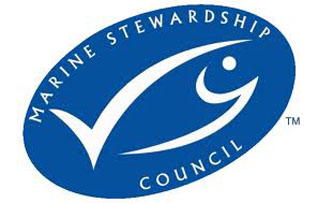Two fisheries in Russia responsible for catching snow crab and halibut have been awarded certification from the Marine Stewardship Council (MSC).
Catch from the Russian Barents Sea Greenland halibut fishery and opilio trap fishery, which is sold throughout Europe, the United States, and Russia, can now bear the blue MSC label signaling that the fisheries are sustainable and well-managed. Independent certifier Lloyd’s Register conducted the detailed assessments and stakeholder consultations required for both fisheries to earn the certificate.
“Congratulations to these fisheries on achieving certification to the MSC’s globally recognized standards for sustainable fishing,” MSC Program Development Director Camiel Derichs said in a press release. “We hope that during the coming years these fisheries will continue to work with scientists and NGOs to deliver the improvements required as conditions of their ongoing certification. These include improvements to harvest strategies and data collection which will contribute to the long-term sustainability of marine ecosystems.”
The opilio trap fishery holds 70 percent of the quota for commercial snow crab in Russia’s exclusive economic zone, which has a total allowable catch of 9,840 metric tons (MT), MSC said. A part of the Association of Crab Catchers of [the Russian] North, the fishery has 12 crab-catching vessels each acquiring between five and 10 MT of snow crab per day from March to June using traps partly made from biodegradable material.
The North-West Fishing Company-Murmansk and North Fisheries comprise the halibut fishery, which operates three vessels fishing in September, October, and November. In 2019, these vessels caught 4,700 MT of Greenland halibut, MSC confirmed. Greenland halibut is a deep-water flatfish, distributed throughout the entire rim of the North Atlantic.
The fishery operates in the Norwegian and Russian economic zones and the fishery protection zone around Svalbard. It is also a joint Norwegian–Russian stock, managed by the Norwegian–Russian Fisheries Commission.
“In 2016, we committed to achieving MSC certification for all of the fisheries that are part of the North West Fishing Consortium. These latest certifications complete this commitment making this a proud moment for our organization. Sustainable and responsible seafood production is an essential part of our business model. I’d like to thank all those who have supported us in this achievement,” North-West Fishing Consortium Executive Director Sergey Nesvetov said
There are now 42 MSC-certified fisheries in Russia, 18 of which are in the Barents Sea.







